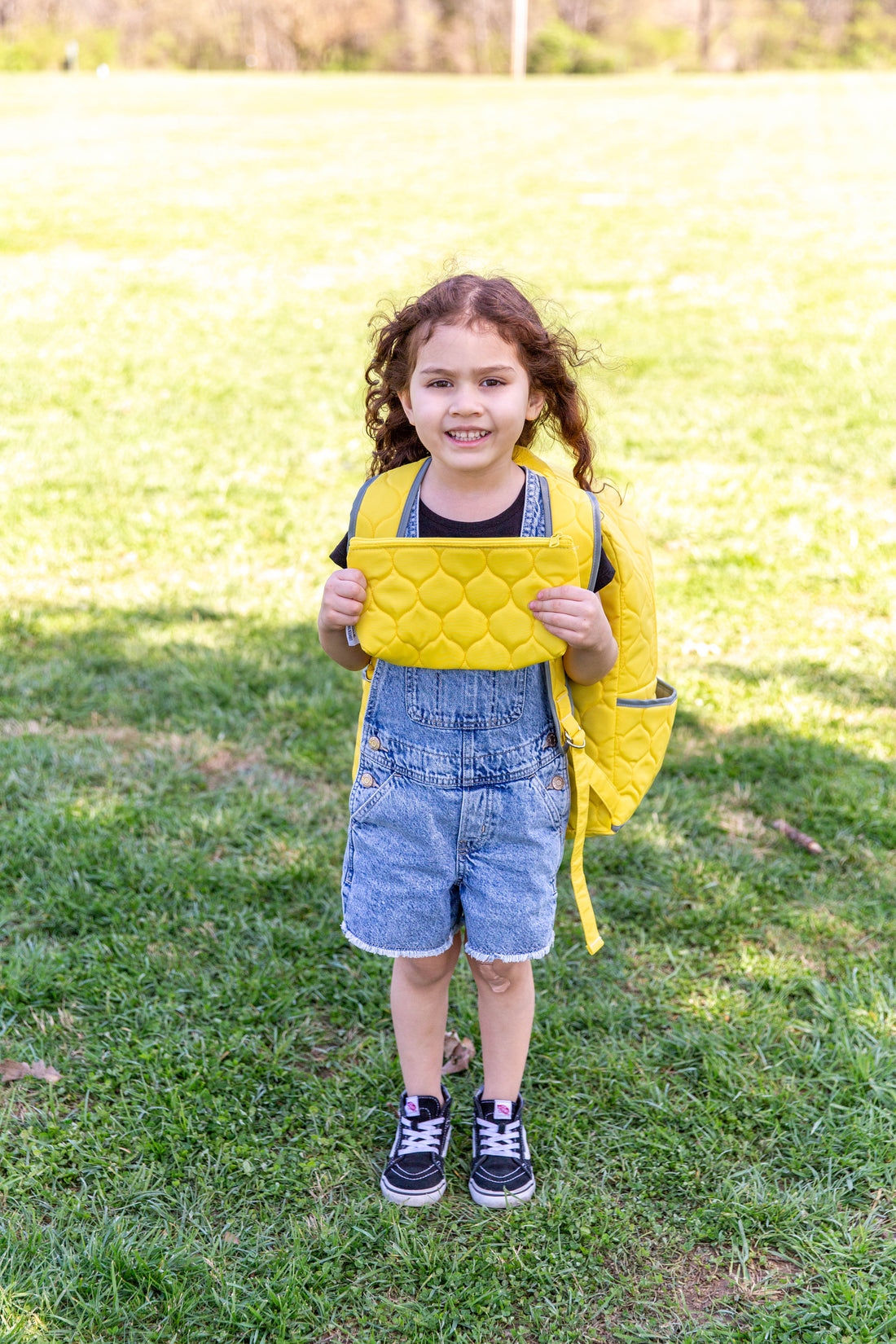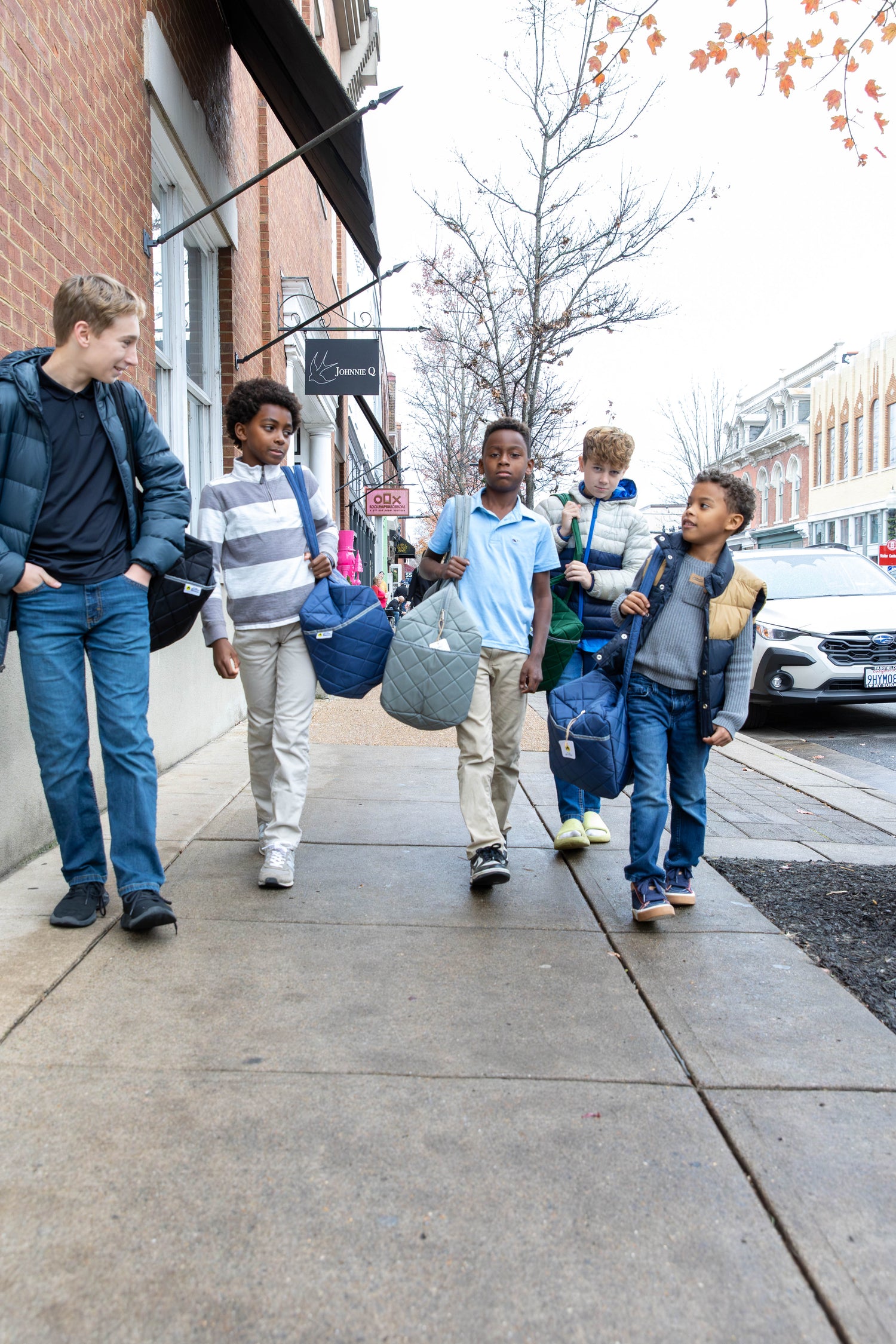
New Bags for Children and Youth in Foster Care Make Back-To-School Transitions Easier
New Bags for Children and Youth in Foster Care Make Back-To-School Transitions Easier
While the back-to-school season is exciting for many children, it often poses unique challenges for foster children. Due to their situation, these children and youth already stand out from their peers. Like any other child or youth, it’s crucial for them to feel like they fit in. Continue reading to learn about the unique challenges foster children face, why fitting in is important, and how your simple gesture can alleviate some of those challenges.
The Importance of Fitting In
Children naturally desire to fit in at school because it fulfills their fundamental need for social belonging and acceptance. Feeling included and accepted by peers helps build their self-esteem and confidence, creating a sense of safety and support. Social integration is crucial for their emotional and psychological development, as it allows them to form friendships, develop social skills, and find their place within the school community.
Additionally, fitting in can alleviate the stress and anxiety associated with feeling isolated or different, promoting a more positive and conducive environment for learning and personal growth. A sense of belonging is foundational for a child's well-being and success.
The Unique Challenges Foster Children Face During Back-to-School
Emotional and Psychological Stress
Foster children frequently face significant emotional and psychological stress. Numerous studies find that many foster children experience anxiety and depression at higher rates than their non-foster peers. Returning to school can exacerbate these feelings, especially if the child has recently been placed in a new home or changed schools.
Academic Disruption and Instability
Students in foster care often face complex challenges due to the instability of their living arrangements. Despite having the right to remain in their original schools, changes in foster care placements or removal from the family home can force students to move schools or even districts. This situation results in a dual burden for children in foster care, as they must adjust to both a new home environment and a new school. Multiple or unexpected school moves can interrupt their learning progression.
In addition to navigating new transportation arrangements and getting accustomed to a new campus, these school changes require students to adjust to different curricula and teachers. They may miss topics or material already covered at their new school and encounter significant differences in teaching styles, potentially leading to lost academic credits and challenging the new school's ability to support them effectively.
Changing schools midyear disrupts academic progress, causing setbacks in learning and subject completion, and can break the supportive social relationships students have developed with peers, teachers, and mentors. These losses can diminish their sense of belonging and engagement at school.
Lack of Resources and Support
Foster children often need more resources and support to succeed in school. This includes everything from school supplies to emotional support. Many foster children do not have access to the same extracurricular activities and academic resources as their peers, putting them at a disadvantage.
How a New Bag Can Help
Although a new backpack won’t completely overcome the challenges foster children and youth face when returning to school, it’s more than just a practical item — it represents stability, care, and a fresh start. For foster children and youth, who often experience frequent changes in their living situations, a new backpack can provide a sense of continuity during upheaval. It's a symbol that someone cares about their well-being and success.
Starting the school year with a new backpack also has psychological benefits. It can boost a child’s self-esteem, making them feel valued and supported. It’s a simple act that can significantly impact their confidence, helping them to approach school with a positive mindset. Furthermore, having a new backpack allows them to blend in with their peers, reducing the feeling of being different.
In essence, a new backpack is more than just a container for books and school supplies; it is a tool that can foster a sense of normalcy and belonging. Equipping foster children and youth with this essential item can help pave the way for a smoother and more confident return to school, contributing to their overall emotional and academic well-being.
Help Us Provide the Promise of a Brighter Future
Donating new bags to foster children is a powerful way to impact their lives and society positively. It boosts their confidence, supports their education, strengthens community ties, and provides economic benefits. Getting involved helps these children have the tools they need to succeed and feel valued in their communities.
Donating new bags to foster children is a meaningful way to support their development and well-being. It gives them a sense of belonging, eases transitions, promotes educational success, and encourages self-esteem and organization. Your contribution, no matter how small, can make a big difference in the lives of these children. Help us #EndTheTrashBag!

